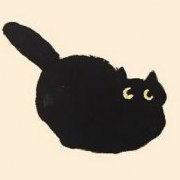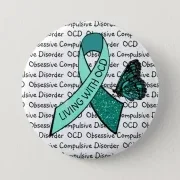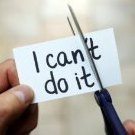-
Posts
21,127 -
Joined
-
Last visited
-

It’s trying to creep back in…
PolarBear replied to Emmalou1976's topic in Obsessive-Compulsive Disorder (OCD)
If you were a non-OCD sufferer, you wouldn't think up detailed scenarios. Those are compulsions. They do no good. They keep you trapped right where you are. The good news is that you don't have to think of the scenarios, test your reactions and analyze. You don't need to do it. You will be fine without doing that. In fact, the only way out of your current misery is to become okay with not doing it and then working to stop doing it. -

Struggling - is this really OCD
PolarBear replied to floods's topic in Obsessive-Compulsive Disorder (OCD)
One of the hallmarks of OCD is a deep desire to find certainty. That's what you want: to be certain that this is OCD. Guess what? You can't have it. OCD will love it if you keep doing what you are doing, searching for certainty, BUT it won't let you be certain. If you wait until you are certain before treating this as OCD, you will never get past this. -

Harm OCD Horrible Thoughts I can’t shake
PolarBear replied to Han38's topic in Obsessive-Compulsive Disorder (OCD)
You don't. One of the hallmarks of OCD is the search for certainty. You search for it, looking for evidence and wracking your brain, but it's never enough. You just go round and round in your head. OCD won't let you be certain about an obsession. The only way out is to stop looking for certainty. Know what your compulsions are and work at stopping them. Get your mind onto other things. -

Is this classed as a compulsion/ reassurance seeking?
PolarBear replied to cam's topic in Obsessive-Compulsive Disorder (OCD)
My advice, delete all the notes. You don't need them. You made a list of things that trigger you. Reading the list you got triggered. How does that help at all? Moving forward means leaving OCD behind. Don't take any bit of OCD with you in the future. -

Struggling - is this really OCD
PolarBear replied to floods's topic in Obsessive-Compulsive Disorder (OCD)
You are going to be anxious without trying to get better, with no end in sight. Might as well be anxious and working on getting better. Snowbear is so right. The more you leave OCD alone, the better you'll feel. -

Struggling - is this really OCD
PolarBear replied to floods's topic in Obsessive-Compulsive Disorder (OCD)
Three days won't cut it. You need months under your belt of ignoring the thoughts, abstaining from compulsions, changing your thinking and some good ERP. -
Is there a book that defines rules about when are appropriate times for private time? I haven't heard of it. Sounds like you need to take care of yourself. Eat properly, get plenty of sleep, exercise, relax.
-
If meds helped you before, it is no surprise that your symptoms are returning after stopping the meds. In addition, it is normal to feel agitated after stopping meds. Most people, when coming off meds, wean themselves, slowly reducing the dosage. That should only be done under a doctor's supervision.
-

This feeling of dread, worry, doom and no hope
PolarBear replied to Chris1987's topic in Obsessive-Compulsive Disorder (OCD)
What goes on in your head when this happens? -
This is usually called false memory OCD. You experience obsessions that, during a night of drinking, you did unspeakable things or someone did unspeakable things to you. All the steps you took after getting these stops were compulsions, did n good, and actually made your situation worse. Do your best to stop doing these things. Stop trying to figure out what happened. I know you have an incredible urge to figure it out, but no good will come of it. The only way this will go away is you leave it alone.
-

This feeling of dread, worry, doom and no hope
PolarBear replied to Chris1987's topic in Obsessive-Compulsive Disorder (OCD)
Sounds like OCD to me. The question is, can you figure out compulsions that you are doing? Like, do you try to answer the questions in your head? -

Struggling - is this really OCD
PolarBear replied to floods's topic in Obsessive-Compulsive Disorder (OCD)
Chances are you are still doing some sort of compulsion, which feeds the obsessions and round and round you go. -

This feeling of dread, worry, doom and no hope
PolarBear replied to Chris1987's topic in Obsessive-Compulsive Disorder (OCD)
Chris, it sounds like your OCD has latched onto something new. This happens. As you said, your old obsession is no longer top of mind. Now your focus is on your mental health. Sound about right? -

Struggling - is this really OCD
PolarBear replied to floods's topic in Obsessive-Compulsive Disorder (OCD)
Hi floods. It is very, very common for sufferers to feel their worries are real and not OCD. Some sufferers have what is called good insight. That means they recognize their fears are likely blown out of proportion. Poor insight is the opposite. You have poor insight. It's not a bad thing. Sufferers belong in one camp or the other or even in between. About anxiety. I know it feels real. That's because it is! Anxiety is anxiety. There are no such things as real anxiety and fake anxiety. The anxiety you feel when you get the thoughts (obsessions) is exactly the same as the anxiety you would feel if you were out for a walk and you suddenly see a lion six feet in front of you. The problem is that there is a part of the brain that basically malfunctions in sufferers and it sends out the anxiety signal at inappropriate times, specifically when you experience an obsession. In my view, it is this jolt of anxiety (or disgust, guilt, shame) that acts like a screaming warning, that causes sufferers to pay attention to the thoughts. So, basically, the emotions you feel are absolutely real, but they are inappropriate for the situation. Generally speaking, OCD sufferers have a higher than normal anxiety level. When I went to group therapy, we did a lot of anxiety level work. Without going into details, the group while relaxed was at a 3 to 5 out of 10, spiking to 7 to 10 when dealing with obsessions. I rated my background anxiety level at 4 to 5. That's all the time, more when OCD struck. So it is perfectly normal, in an OCD world, to feel anxious a lot of the time. Fearing that something will harm you is perfectly normal. Some sufferers fear they will cause harm. Some fear harm will come to a specific loved one. All normal. Recovery is a process. It can take a long time to see positive results and you will have setbacks and sudden advances. One foot in front of the other. A favorite quote: A journey of a thousand miles begins with a single step.





